#clifford Pyncheon
Text
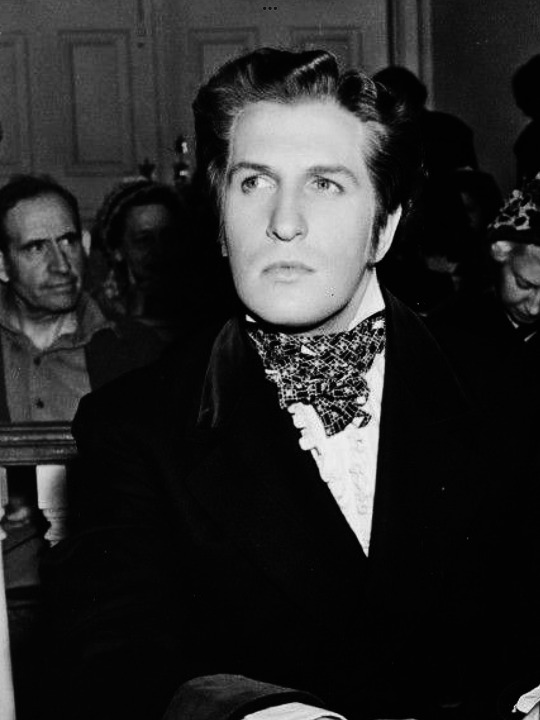
Vincent Price as Clifford Pyncheon
House of the Seven Gables (1940)
#vincent price#house of the seven gables#photo#photo edit by me#clifford Pyncheon#fuck#i desire him carnally#he had no right to be this hot#s..sir#fuckkkk#bicon#bisexual#horror#old horror movies#vintage#movie#actor#handsome
124 notes
·
View notes
Text
ACtors who played hero and villain in a diffrent adaptation
Anyone have any examples of a actor playing a hero and villain in diffrent adaptations of the same work
I can only think of three
Vincent Price as Clifford Pyncheon and Gerald Pyncheon(Based on Jeffrey Pyncheon ) in House of Seven Gables /Twice Told Tales
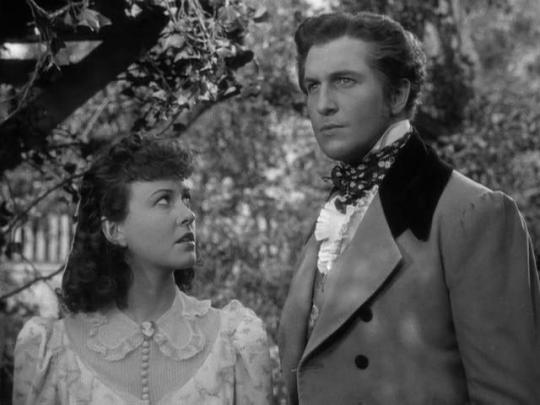

Carol Burnett as Princess Winnifred and Queen Aggravain in Once Upon a Mattress
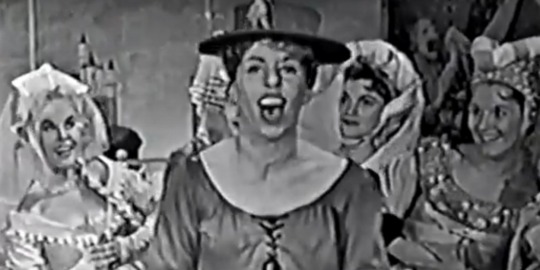

John Hurt as Hazel and General Woundwort in Watership Down /Watership Down the Series

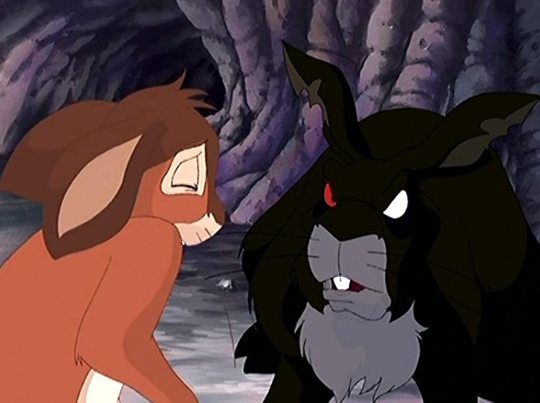
@angelixgutz @metropolitan-mutant-of-ark @ariel-seagull-wings @the-blue-fairie @themousefromfantasyland @amalthea9 @princesssarisa @filmcityworld1
9 notes
·
View notes
Text
Leaving these antique themes, the old lady began to talk… (Hawthorne,63)
Daguerreotypist, strangest companions, animal magnetism, antique themes, narrow circumstances, new‐fangled, philanthropists
Perspective: The Judge
“Leaving these antique themes, the old lady began to talk about that troublesome Daguerreotypist, who had no claim to reside within the house of gables.”
The judge has a clear dislike for Holograve and the fact that someone who isn’t a part of the Pyncheon bloodline is living in the house. His disdain for Holograve specifically though makes me want to use negative adjectives. However, Holograve hasn’t done anything “bad” in the novel so troublesome is the best word I could think of.
Perspective: Clifford
Leaving these antique themes, the old lady began to talk and talk about the young man who resided upstairs.”
We have yet to meet Clifford in the story yet, but we do know that Clifford doesn’t really care about what Hepzibah has to say at all. His attention is directed towards Phoebe and other things that are not Hepzibah.
It’s interesting how both characters aren’t necessarily fond of Holograve for one reason or another. While the reasoning is vastly different, they seem to share similar perspectives. The only reason Clifford is not outwardly banished from the house despite his “past” is that he is a part of the Pyncheon bloodline. The Judge also has no real say because he does not actively live in the house. So it’s interesting to see the power dynamic of both aspects. The Judge has a lot of social power while Clifford has more familial power due to being Hepzibah’s brother.

It really emphasizes the significance of Holograve as a character. He is like the watchful eye over the Pyncheon house. It is as though there is something he is looking for or needs to do. There’s no real reason for him to be in this house, only Phoebe takes great interest in Holograve which pushes that theme of generational change. It is intriguing to see how that corresponds with Holograve and how he will fit later on in the story.
(ENG 235)
1 note
·
View note
Text



My literary claim from step 5 might apply to this new passage because it exemplifies the changes made after Clifford’s presence of only a few days in the Pyncheon household. He refused to interact with Hepzibah due to her looks and only spent time with Phoebe. Furthermore demonstrating that Hepzibah was lonely and looking for a way out. Clifford could have been the answer but due to his ego, he was no help to her but he made the household feel alive again.
1 note
·
View note
Text

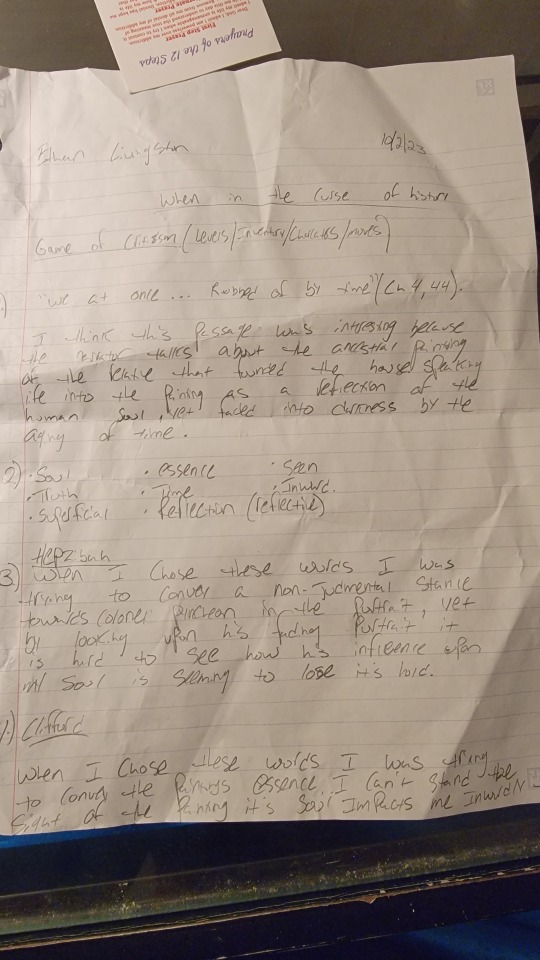

(Chapter 14, pg. 153)
It is interesting to me the speaker here uses the term natural to impose on the environment the subject is in. To whatever effect that Phoebe embodies in her soul restores temporarily, the environment to it's natural state. In this case, The House of the Seven Gables which is shrouded in rot and a cursed history is somehow forgotten by the essence of Phoebe's soul. Yet, as the speaker warns, when she leaves these things comes into view again.
When I think of natural it makes me think a sense of right or wrong i.e. moral conscious. In the literal sense of the word it makes me think also to an object or person resembling the original form that it was intended to represent. To this end, I think the term embodied here in the text also supports these meanings of the word natural by embodying the original form of the house, the characters, in which they were intended to be in rather than the cloud of superstition and shadows of the choices that the family has made in previous generations. Phoebe is the representation of innocence and curious questioning of why things are not in their natural state of being and why there is a cloud in the first place.
Going back to the painting of Colonel Pyncheon, his colors and essence proceeds to fade over time lessoning his presence in the present day. Yet he is still seen, albeit faded with time, the traits in which defined him as Colonel Pyncheon. These traits seem to manifest in the scowl of Hepzibah, the stern resoluteness in Judge Pyncheon, and the far off sadness and shock of Clifford. These traits while they may be exposed in an overused manner throughout the story show us that the history of the family is still apparent after time hanging over the family like a dark cloud. Faded, and only pointed out with abysmal detail when the story unfolds further. Yet, with Pheobe as its center seems to both renew these traits in others by stark juxtaposition of her traits as blessings to be around. Bringing smiles and thoughtful care to ensure she does not become ensnared by the darkness that surrounds her, in which she brings light to.
1 note
·
View note
Text
"You are a nice girl-I see it plainly; continued Hepzibah; "and it is not any question, as to the point, which makes me hesitate. But, Phoebe, this house of mine is but a melancholy place for a young person to be in. It lets in the wind and rain-and the snow, too, in the garret and upper chambers, in the winter-time-but it never lets in the sunshine!" (chapter V, page 55). I admire the beautiful simplicity of Hepzibah's/Hawthorne's metaphors, and I find the use of the words "upper chambers" a clever allusion to the heart.
terms: wind, rain, snow, garret, upper chambers, winter-time, sunshine, house
(Role: Hepzibah) When I chose these words, I was implying that the "house" Phoebe should not reside in is the United States, which has become a bleak place of hardship too fierce for such a gentle girl. The wind, rain, and snow represent those hardships, and the garret and upper chambers represent the young girl's mind and heart respectively. Sunshine, representing goodness and times of good fortune, however, is often absent from our daily lives.
(Role: Phoebe) I usually see things for what they are. I can not ignore how disheveled the Pyncheon house has is; its state of disrepair is too severe for a person like me, but I insist that I endure the harsh weather, as I am certain sunshine will arrive with patience.
The text uses these words to highlight distinctions between Hepzibah's more stern outlook and Phoebe's youthful ignorance. Time and struggles have resulted in the miserable states of Hepzibah and her home. Phoebe, however, is not bound by this place. She carries herself with a palpable joy and, despite appearing childish to Hepzibah, is someone willing to tough out bad situations and transform them into something better.
"Phoebe's voice had always a pretty music in it, and could either enliven Clifford, by its sparkle and gaiety of tone, or soothe him by a continued flow of pebbly and brook-like cadences" (chapter X, page 104). This passage further emphasizes the differences between Phoebe and Hepzibah, Clifford's younger sister. Clifford has been suffering severe depression since his arrival at the Pyncheon house, and his sister only serves to worsen his misery with her dreadful books and unnerving scowl. However, Phoebe nurses him a sense, spending time with him in the garden, reading to him, and reinvigorating him with her sheer presence. Clifford's opposing reactions to Hepzibah and Phoebe illustrate that Hepzibah's depressing outlook does not have to be a definite way of interpreting the world and that Phoebe, despite her youthful naivety, can create a substantial positive influence on other people's lives. Instead of words with negative connotations, like "rain" and "snow," Phoebe's descriptions often contain more uplifting words, like "sparkle," "music," and "flow."
1 note
·
View note
Text

Chapter 6, page 63
I chose the passage where Phoebe is describing the Pyncheon’s garden because while reading the passage I believe that the state of the garden and the way she describes it also describes the house and the Pyncheon family in some ways.
“Vagrant” “decay” “death” “evil” “symbolic” “society” “Defective” “careful labor” “hereditary”
When I chose these words, I was trying to convey how the Pyncheon family is presented in their garden. At first glance, they seem uncared for and deformed, and even linked with misfortune and death (as seen with the dead plants), but they do have people who are looking out for them, and they always look out and care for each other. (Phoebe)
When I chose these words, I was trying to convey how the Pyncheon family looks from an outsider's perspective. The curse placed on them by Matthew Maule seems to hang around the whole family like a dark cloud, yet when you get closer and look deeper, there is beauty in how the family members who live in the house rely on each other. (Holgrave)
The text uses these words or images to highlight the way the Pyncheon family is. Separately, they are all very different people, which is especially clear in the feud between Hepzibah and Judge. The family is associated with death and darkness, but there are parts of them that are quite bright, such as Phoebe’s overall demeanor and how Hepzibah and Phoebe cared for Clifford since the end of his imprisonment.
1 note
·
View note
Photo


Vincent Price as Clifford Pyncheon in The House Of The Seven Gables // 1940 // embrace
He looks super gorgeous here!
26 notes
·
View notes
Quote
Is it a fact – or have I dreamt it – that, by means of electricity, the world of matter has become a great nerve, vibrating thousands of miles in a breathless point of time?
Clifford Pyncheon, The House of the Seven Gables, by Nathaniel Hawthorne
#quotes#nathaniel hawthorne#electricity#globalization#the house of the seven gables#fun fact I first heard this quote from#sid meier's civilization v#where it's the quote for researching the electricity technology#i've never read the book#and i probably never will
2 notes
·
View notes
Photo








The House of Seven Gables - NBC - November 11, 1960
Drama
Running Time: 60 minutes
A Presentation of The Shirley Temple Show (Shirley Temple’s Storybook)
Stars:
Shirley Temple as Phoebe Pyncheon
Robert Culp as Holgrave
Agnes Moorehead as Hepzibah Pyncheon
Jonathan Harris as Judge Jaffrey Pyncheon
John Abbott as Uncle Venner
Martin Landau as Clifford Pyncheon
#The House of Seven Gables#TV#Drama#NBC#1960#The Shirley Temple Show#Title#Shirley Temple#Robert Culp#Agnes Moorhead#Jonathan Harris#John Abbott#Martin Landau
14 notes
·
View notes
Text
I’m supposed to be reading subs but I wrote something instead because my brain is on fire.
I don’t think this is publishable so I’ll just leave it here...
Alrescha
You may as well be Dimitri Karamazov
or Mr. Darcy or Clifford Pyncheon, the details
are not important because you are a dream
of ink & poetry; you are a flutter of briefly
knowing, the sun on your wings like a story,
prying open spring flowers just to wilt; I know
you as language, as a turn of phrase & it holds
me in this world though I wish I could slip away
between pages of plot & predetermination. Let me
write & revise until my fingers fail, the pen heavier
than my heart. Realize that life is not as elegant
as a novel. Nothing makes sense, & I cannot cease
this intolerable wanting despite nothing developing
from this sludge of story & spite. I am not alone
when I am without you because knowing you
has split me in two — she who loves you as ink & blood
& she who loathes a story that will not end well — & I am good
company, the dark world fades into the sky between the stars.
2 notes
·
View notes
Text

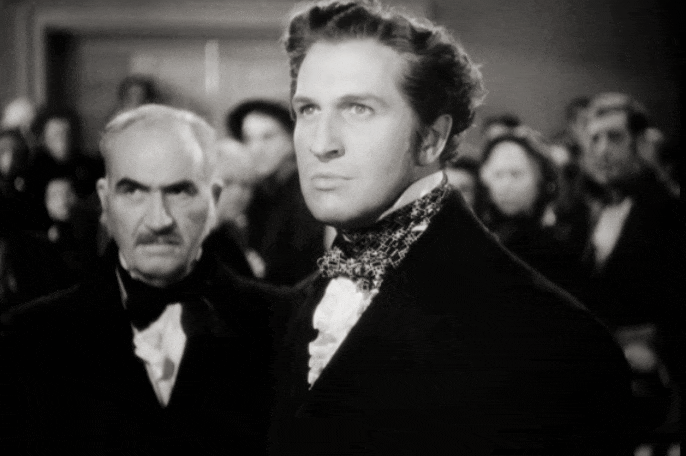
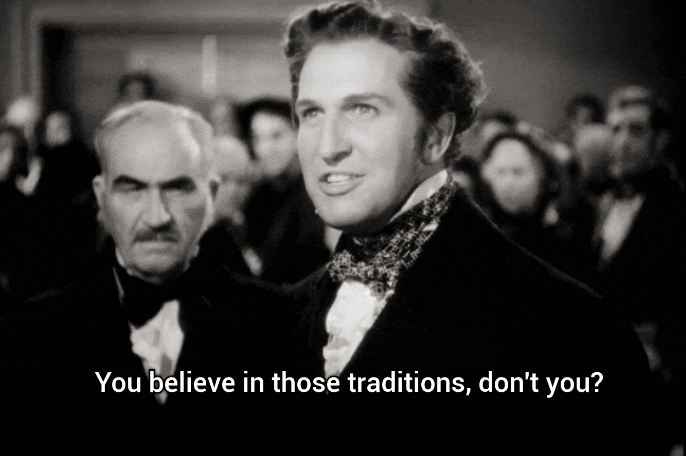


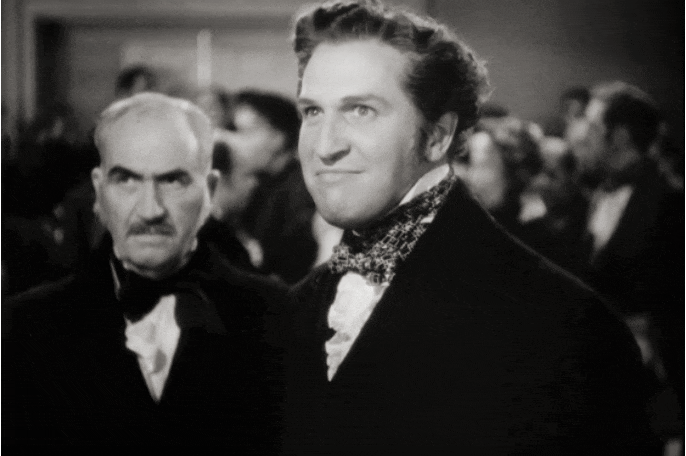

Vincent Price as Clifford Pyncheon
House of the Seven Gables (1940) dir. Joe May
#vincent price#clifford Pyncheon#house of the seven gables#40s#1940s#he is so cuteeeeee#screams into the void#whyyyyyy tho#hes so sexy#it's amazing how hot he was and with every decade...he got hotter#how's that possible#anyway...moving on#bicon#bisexual#god#horror#old horror movies#vintage#movie#actor#handsome#gif#gifs made by me#gif set#nathaniel hawthorne
114 notes
·
View notes
Text
Hepzibah of the Seven Gables
Character, “one of the attributes or features that make up and distinguish an individual,” (Merriam-Webster). In his novel entitled The House of the Seven Gables, Nathaniel Hawthorne draws upon the time he spent in Massachusetts and his family history in order to craft the story’s main character, Hepzibah Pyncheon. At the onset of Hawthorne’s narration, Hepzibah is a reclusive old woman who lives in a vast mansion with a single lodger with whom she rarely comes into contact. Due to a number of factors both in and out of her control, Hepzibah becomes extremely isolated, rendering her helpless when faced with the obstacles her cousin Judge Pyncheon creates. By allowing her younger cousin Phoebe into her life and gradually adjusting her behaviors, Hepzibah becomes all the more formidable and is able to overcome the danger Judge Pyncheon presents.
It is often said that authors “write what they know.” Nathaniel Hawthorne proved to be no different when one considers his creation of the character Hepzibah Pyncheon for his novel The House of the Seven Gables. This analysis is based on a few different factors. First, Hawthorne spent a great deal of his life living in the state of Massachusetts. At several points during the course of his life, he lived in Salem, which is famous for its witch trials. He also spent time living in West Newton and Lenox, where he wrote The House of the Seven Gables. Hawthorne incorporated Salem’s history into the novel, a setting he was familiar with because Hepzibah’s story is set in Massachusetts. Furthermore, she feels as though she is being forced to contend with the effects of her ancestor’s sin—Colonel Pyncheon’s false accusation of Matthew Maule. The accusation stated that Maule was a wizard; it was used to obtain his lands. Upon Maule’s execution, Colonel Pyncheon was cursed by Maule for his misdeeds. Hepzibah’s experience as the descendant of a sinner appears reflexive of Hawthorne’s own life because one of Hawthorne’s ancestors—William Hathorne—a magistrate, ordered a woman to be publically flogged due to her differing faith. “Hawthorne was later to wonder whether the decline of his family’s prosperity and prominence during the 18th century…might not be retribution for this act and the role of William’s son John as one of three judges in the Salem witchcraft trials of 1692,” (“Nathaniel Hawthorne”). Hawthorne’s experience mirrors Hepzibah’s because she feels as though she is being forced to contend with an intangible force—Maule’s curse upon her ancestor, which had been passed down from generation to generation. The curse’s unknowable quantity troubles Hepzibah, as does the knowledge that she has no ability to control it and what she views as its effects on her life—such as her impoverishment. Due to the similarities between Hepzibah’s experience and those of her creator, many scholars have begun to view The House of the Seven Gables as a “study in hereditary sin based on the legend of a curse pronounced on Hawthorne’s own family by a woman condemned to death during the witchcraft trials,” (“Nathaniel Hawthorne”). Their analysis has led me to view Hepzibah as a projection of Hawthorne upon the page—a version of what he could be in several years’ time.
One of the many factors, which contributed to Hepzibah’s extreme isolation was her outward appearance. Hepzibah is described as being a pale-skinned older woman. She is also known throughout her town for always sporting a scowl which “had done [her] a very ill office, in establishing her character as an ill-tempered old maid,” (Hawthorne 23). Coupled with her “perversely stern” visage, Hepzibah gained a reputation for her ability to occasionally frighten small children with little more than a single look. To add insult to injury, she was deemed so ugly that not even her own brother Clifford could bear to look at her. Hawthorne writes, “not less evident was this love and necessity for the Beautiful, in the instinctive caution with which, even so soon, his eyes turned away from his hostess, and wandered to any quarter rather than come back,” (82). Hepzibah’s appearance affected her ability to socialize because of the “‘what is beautiful is good’” stereotype, (Sanderson 416). This stereotype associates positive traits such as kindness, a personable nature, and strength with attractive individuals. Conversely, the “what is beautiful is good” stereotype associates negative traits such as a malevolent nature, wickedness, stupidity, and weakness with unattractive people. As a result of this stereotype and her iconic scowl, readers conclude that Hepzibah was viewed negatively by society at least in part, on account of her appearance. The fact that Hepzibah internalized how others reacted to her and continued to glower as opposed to try and mend her behavior for the better only exacerbated matters. Hepzibah’s insistence on scowling and the assumptions people made when they considered her appearance ensured that she remained isolated because there are few people willing to try and make friends with someone who seems crabby and unwilling to put any effort into a relationship.
During Colonel Pyncheon’s lifetime, the house of the seven gables proved to be a desirable home because of its grand and majestic nature. It possessed features such as a “great chimney,” an “open porch,” and a main entrance, “which had almost the breadth of a church door,” (Hawthorne 6). By the time Hepzibah Pyncheon inherited the house of the seven gables from her ancestors roughly a century and a half later, the Pyncheon Home was a state of decay. Its body had grown old and worn and it was surrounded by a “ruinous fence,” (Hawthorne 18). Moss had “long since gathered over the projections of the windows, and on the slopes of the roof,” (18). When taken into consideration alongside the isolated state of the mansion’s main inhabitant, it would appear as though the mansion’s physical state had become a reflection of the state of its inhabitants. In other words, its appearance had begun to mirror the state of decline that the Pyncheon family was facing. First, the home’s older nature reflects that of Hepzibah, who has become old and worn. The “crumbling plaster” is symbolic of how the Pyncheon family had begun to crumble beneath the weight of their ancestor’s curse and their poverty, (17). Finally, since both the fence and the moss that grows upon the Pyncheon House surround it, they choke it. I feel as though both the dilapidated fence and the moss reflect Hepzibah’s sense of feeling trapped not only within her own home, but within her own mind. Since Hepzibah believes in her family curse, she feels as though she has no control over the events that take place during the course of her everyday life. Thus, I would argue that Hepzibah’s reclusive nature, the curse’s effects, and the poor state of her home ensure that Hepzibah remains extremely unhappy, so much so, that it would appear as though she is depressed.
Depression is characterized by “feelings of sadness [that] have lasted at least two weeks” in conjunction with other symptoms such as anxiety (Gleitman et al. 614). Often, the diathesis-stress model is used to explain why an individual suffers from depression. It states that a group of “factors (the diathesis) [creates] a predisposition or risk for the disorder, and then a different set of factors (the stress) [provides] the trigger that turns the potential into the actual disorder… neither the diathesis nor the stress by itself causes the disorder; instead, the disorder emerges only if both sets of factors are present,” (Gleitman et al. 600). Given the state of Hepzibah’s life, it comes as no surprise that she suffers from depression. First, Hepzibah appears to have a genetic predisposition for depression because the vast majority if not all of her ancestors also suffered from it. This suffering was brought on largely by the family curse, which they felt they had no power over and contributed to all of their woes, such as the decline within their family’s wealth and prestige. Secondly, Hepzibah is impoverished, which creates its own set of stressors, which contribute to her poor mental health. Third, Hepzibah’s “war” with her abusive cousin Judge Pyncheon contributes to the stress she experiences, making her feel both helpless and unhappy—two factors, which certainly make it difficult for Hepzibah to get better. Fourth, Hepzibah is older, which means that like most of her peers, she is “lonely.” Most of her friends and family members are gone, leaving her isolated—trapped within a mansion that is falling apart. Her inability “to bounce back from psychosocial losses… and failure to have meaningful life goals,” hinders her ability to overcome her depression and live a meaningful life, (Zastrow & Kirst-Ashman 648). These “losses” include the imprisonment of her brother Clifford and her inability to form meaningful connections with the majority of her remaining relatives. Furthermore, Hepzibah’s life lacks direction—for her, there is no end goal. She doesn’t wish to get married, have children, or really do much of anything with her life. She lacks aspirations and goals, which may help to draw her out of her depression, simply because it gives her something to aim for and look forward to. Finally, Hepzibah’s struggle to leave her home makes it difficult for her to recover because it ensures that she stays isolated, which contributes to her feelings of loneliness and depression. Thus, Hepzibah’s genetic predisposition for depression was brought to light by the hardships she was forced to endure during her lifetime.
Poverty stems from many different sources, but in Hepzibah’s case, its greatest source appears to be her unwillingness to work until she hit rock bottom. After suffering beneath poverty’s weight for many years, she finally decides to open a cent shop in order to begin generating an income. However, Hepzibah feels a sense of shame over having been forced to open a shop, since she considers to be beneath her. Her feelings become apparent when she “fled into the inner parlor, threw herself into the ancestral elbow-chair, and wept” following the opening of her shop, (Hawthorne 28). Hepzibah’s wounded pride, however, is the least of her poverty-induced problems. “Sociological research from as far back as the 1930s has found that the mental health of the lower classes is worse than that of the higher classes. Greater mental problems are part of the higher stress that accompanies poverty,” (Henslin 270). As previously discussed, Hepzibah is forced to contend with a number of different stressors on an everyday basis. For example, she is forced to wonder how she is going to feed herself and more. Furthermore, Hepzibah suffers from depression, which is known to reduce appetite, make it difficult if not impossible for people to feel either hopeful or happy, induce feelings of loneliness, and reduce one’s willingness to socialize. As a result, Hepzibah’s depressive state and her impoverished one play into one another by magnifying the negative aspects of its counterpart. The fact that Hepzibah is poor creates stress and a state of depression, while her depression contributes to her unwillingness to do anything which would help eliminate her struggles with poverty.
Hepzibah’s sense of pride also proves to be one of the factors which contributes to her isolation. Hepzibah’s proud nature is apparent when she expresses shame over being forced to open a shop, descriptions of how she looked down upon several of her town’s inhabitants, and her disgust at having accepted money from a poor boy. Hawthorne writes, “the sordid stain of that copper coin could never be washed away from her palm,” (36). In so doing, Hawthorne expresses not only Hepzibah’s disgust with the boy from whom she accepted payment, but herself. Hepzibah’s self-loathing stems from the fact that she can no longer turn back—through her acquisition of change from the sale of goods, she has admitted to both herself and the world that she is poor and her family lacks the power and prestige it once possessed. Furthermore, her acceptance of the coin expresses necessity—the fact that she had to accept it because she needed it to help pay for her means of survival. The resulting shame in conjunction with Hepzibah’s (wounded) pride naturally kept people at bay and helped to ensure that she remained on her own.
Hepzibah proves to be the ideal character for The House of the Seven Gables because she is so isolated that she becomes easy prey for both Judge Pyncheon and the family curse. I feel as though this is the case because she has no one she can depend on or turn to in her time of need. As a result, Hawthorne’s narrative can be taken to its dramatic extremes because it is so easy for Hepzibah’s life to keep spiraling out of control. To make matters worse, Hepzibah’s state of isolation is bolstered by several factors both in and out of her control. These factors include issues such as her state of impoverishment, Clifford’s imprisonment, living in the house of the seven gables, her depressive state, her appearance, and her sense of pride. In order to overcome the obstacles life presented her, Hepzibah had to make some adjustments, which she accomplished only by letting her younger cousin Phoebe into her life, something, which proved to be rather difficult for her.
Hepzibah’s difficulty in adjusting her behavior and overcoming her reclusive nature stemmed from several different factors, including things as simple as sheer habit. Furthermore, her fear of change and unwillingness to take risks did her a disservice as well. For example, at the end of the novel, Hepzibah is sent to find her brother Clifford so that Judge Pyncheon can speak with him. Hepzibah has trouble finding him, and as she continues her search, she considers crying out to someone for help. However, as her mind keeps wandering, she talks herself out of it because “might and wrong combined, like iron magnetized, are endowed with irresistible attraction. There would be Judge Pyncheon,—a person eminent in the public view” and “who, on the other [side]?” (Hawthorne 189). Given her reputation, Hepzibah felt it unlikely that anyone would come to her aid. Her fear kept her from asking for assistance, which admittedly, could have made her situation worse, or alternatively, could have made it better.
One of the greatest factors contributing to Hepzibah’s transition from an isolated individual into a far healthier one was her relationship with her younger cousin Phoebe. Although hesitant at first to let her remain in the house of the seven gables on account of its being too “melancholy…for a young person to be in,” Hepzibah reluctantly allows Phoebe to come and live with her, (Hawthorne 55). The moment that Hepzibah allowed Phoebe into her life was the moment she began to improve the quality of her life because “interacting with others boosts feelings of well-being and decreases feelings of depression,” (Anderson et al.). Although the cousins didn’t spend all of their time together, Hepzibah began to spend a great deal of her time with Phoebe, which kept her from being completely isolated. The time spent in her cousin’s company was extremely positive because it allowed Hepzibah to begin making the adjustments that would prove necessary for her to improve the state of her life. These adjustments stemmed from a mixture of the healthier behaviors that Phoebe modeled and from Phoebe’s bright personality, which greatly differed from that of her older cousin. Unlike Hepzibah, Phoebe is young and vibrant and filled with life. She is energetic, optimistic, and willing to help her older cousin run her shop. As a result, Phoebe’s characteristics began to “rub off” on her cousin, and Hepzibah’s on Phoebe. Although Hepzibah was far from an entirely new person, she made several subtle changes by the end of the novel, which helped improve both her emotional and social well-being. For example, she scowled far less and occasionally smiled, which allowed her to come off as more approachable than she had at the beginning of the novel. As a result, she became more capable of making and maintaining friendships, which helped to eradicate her depression and in her fight against Judge Pyncheon.
Phoebe’s relationship with Hepzibah served as a precedent, demonstrating that Hepzibah was capable of having healthy, rewarding friendships if only she put in the effort. I would argue that by using her relationship with Phoebe as a model, Hepzibah was able to adjust her behaviors so that she developed a meaningful friendship with Uncle Venner and Mr. Holgrave, with whom she had a mere passing acquaintance. Readers notice this shift when they consider how she and Mr. Holgrave went from being strangers occupying opposite sides of the house of the seven gables, to acquaintances who talked occasionally and supported each other, (such as when Holgrave offered to be Hepzibah’s first customer), to true friends when Mr. Holgrave announced that he was marrying Phoebe following the Judge’s death and would be residing with Hepzibah and her family. A similar transition was made after an elongated period in which Hepzibah and Uncle Venner were mere acquaintances who spoke on occasion, to friends when he was invited to come live in the Pyncheon family’s “country-seat” at the end of the novel (Hawthorne 248). Furthermore, by using her relationship with Phoebe as a model, Hepzibah was able to shift her relationship with Clifford from a non-existent one, to a one-sided relationship, and then a two-sided one. This shift becomes evident when we consider how Clifford spent thirty years in jail, during which time he had no correspondence with his sister, and thus no relationship. From there, the relationship develops into something more one-sided upon his return because Hepzibah spends her time doting on him and doing her best to care for him while Clifford slips into depression and largely ignores her. At the end of the novel, the pair develop a healthy sibling relationship when they begin to talk more openly and Clifford helps his sister to overcome the trauma Judge Pyncheon inflicted upon her.
Hepzibah fails to overcome her cousin in the traditional sense of the phrase, (because of his untimely demise), although she grows stronger as she continues to combat him. By drawing strength from her relationships with both friends and family, Hepzibah becomes all the more formidable. Despite the fact that Judge Pyncheon continues to instill a mixture of pain and fear in Hepzibah’s heart, she rises to the occasion by the end of the novel and challenges him. At the onset of Hawthorne’s narration, Hepzibah was extremely reclusive and weak, offering her cousin, Judge Pyncheon, little to no resistance. By the time she had developed a meaningful relationship with Phoebe and better relationships with individuals such as Uncle Venner and Mr. Holgrave, she possessed the strength to form not only strong negative opinions of Judge Pyncheon, but take action against him. For example, when Judge Pyncheon comes seeking an audience with Clifford, Hepzibah does her best to prevent Judge Pyncheon from seeing him. First, she does her best to bar the door, denying the Judge entrance to their home. Second, she asks that the Judge “‘leave poor Clifford and me in peace’” because neither she nor her brother “desires anything better!” (Hawthorne 181). Finally, she says that her cousin must be “dreaming” because she doubts that her brother possesses the knowledge that the Judge claims he must know, (Hawthorne 183). Their interaction demonstrates Hepzibah’s growth and maturation throughout the novel because she was able to stand up to her cousin and voice her ill opinion of him, whereas she had been unable to before. Since Judge Pyncheon dies shortly after Hepzibah’s argument with him, she never gets to overcome him in the traditional sense of the phrase. However, Hepzibah wins a moral victory over her tormenter because he is punished for his sins by a force as intangible as the curse which haunts Hepzibah. For his defeat and keeping herself outside the realm of her family’s sinful habits, Hepzibah is rewarded with both lasting friendships and an improved mental state.
In conclusion, Nathaniel Hawthorne drew from his life’s experiences in order to create Hepzibah Pyncheon for his novel entitled The House of the Seven Gables. Hepzibah proves to be the ideal character for Hawthorne’s novel because she was so isolated that she became weak and easy prey for her cousin. Thus, her plight could be taken to certain extremes that a less-isolated character could not. Hepzibah became rather reclusive for several reasons both in and out of her control. These factors included her depressive state, her impoverishment, her appearance, Clifford’s imprisonment, living within the house of the seven gables, and her sense of pride. Hepzibah managed to combat these issues and win a moral victory over Judge Pyncheon by developing a relationship with her younger cousin Phoebe Pyncheon. This is due to the fact that Hepzibah’s friendship with her cousin served as a new paradigm, which allowed her to expand upon her relationships with other individuals such as her brother Clifford, causing her to become far less isolated and more formidable.
Works Cited
Anderson, Nicole, et al. “The Health Benefits of Socializing.” Psychology Today, Sussex Publishers, 30 June 2016, www.psychologytoday.com/blog/living-mild-cognitive-impairment/201606/the-health-benefits-socializing.
“Character.” Merriam-Webster, Merriam-Webster, www.merriam-webster.com/dictonary/character.
Gleitman, Henry, et al. Psychology. 7th ed., W.W. Norton & Company, 2007.
Hawthorne, Nathaniel. The House of the Seven Gables. Dodo Press, 2006.
Henslin, James M. Sociology: A Down-To-Earth Approach. 12th ed., Pearson, 2014.
“Nathaniel Hawthorne.” Encyclopedia Britannica, Encyclopedia Britannica, Inc., 2 Aug. 2017, www.britannica.com/biography/Nathaniel-Hawthorne.
Sanderson, Catherine A.. Social Psychology. John Wiley & Sons, Inc., 2010.
Zastrow, Charles H., and Karen K. Kirst-Ashman. Understanding Human Behavior and the Social Environment. 9th ed., Brooks/Cole, Cengage Learning, 2013.
#my work#essay#paper#original post#my views#hepzibah#hepzibah pyncheon#clifford pyncheon#judge pyncheon#maule#matthew maule#nathaniel hawthorne#hawthorne#the house of the seven gables#recluse#character#protagonist#antagonist#sin#evil#curse#zastrow#psychology#poverty#impoverished#poor#decline#sanderson#colonel pyncheon#family curse
0 notes
Photo


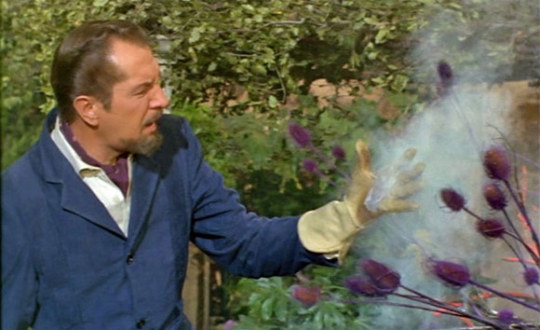
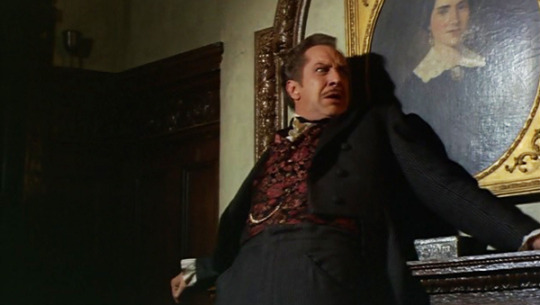
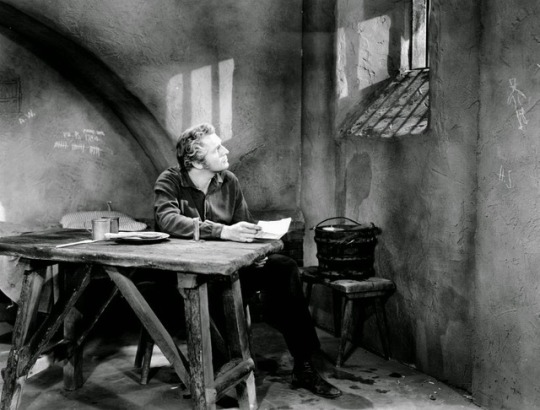
Vincent Price left a legacy of outstanding work in mostly underwhelming films, but true Priceophiles can always find the gems amongst the dregs. A standout is the 1963 anthology, loosely based on the work of Nathaniel Hawthorne, titled “Twice-Told Tales,” in which he played three different roles in three different segments. In the first, “Dr. Heidegger’s Experiment,” he is Alex Medbourne, a young gentleman called in to assist Dr. Carl Heidigger – played beautifully by Sebastian Cabot – to restore youth to himself, the good doctor and the doctor’s fiancée. In the second, he is Dr. Giacomo Rappacinni, a demented father inoculating his daughter with poison so she can never leave him for another, in “Rappaccini’s Daughter.” In the third, he is Gerald Pynchon, a bad seed who returns to his family’s dilapidated estate to search for hidden treasure in “The House Of The Seven Gables.” Price’s association with Hawthorne’s “House Of The Seven Gables” cannot be overstated. In 1940, he had appeared in the lavish black and white melodrama of the same name as wronged brother Clifford Pyncheon. Then, in 1990, he took viewers on a private tour of the 1688-built merchant house in Salem, Massachusetts that served as the model for Hawthorne’s tale in “The House of the Seven Gables: A Guided Tour with Vincent Price.”
7 notes
·
View notes
Text
thinking of a stage adaptation of House of the Seven Gables where the narrator is also a character, standing off to the side of the stage and having long-winded monologues while the characters struggle to get a word in edgewise. judge pyncheon walks onstage and has to wait like 5 minutes between lines while the narrator brings out a whiteboard and a blown-up photo of the puritan to draw comparisons between them. phoebe spends long narrative breaks tidying up around set. hephzibah just stares down the narrator the whole time. clifford falls asleep and snores audibly
0 notes
Text

The House of the Seven Gables by Nathaniel Hawthorne.
7.9/10
The photo in the front of this book doesn’t match up to the image in my head of the house except for the gables (at least in the beginning part of the book). I just expected it to be more study looking and grand. I guess at one point it was. The way they talk about the home is like how some talk about New York City.
I honestly don’t need the nasty attitude of this town.
Honestly, I thought it would be the plot of the skeleton key when i started reading about Jaffrey’s lack of movement.
I actually really enjoyed reading this. First I liked from Nathaniel Hawthorne. I enjoy its vocabulary. I enjoy its attention to the world and life’s and nature’s role within in.
Getting a lot of depression vibes when I read more and more about Hepzibah. Like what is the point to living?
I’m like how old is Phoebe?//?? to be with himsttt??
Picture of Dorian Gray vibes.
Memorable Quotes:
“So wholesome is effort!”
“in spite of prejudice, her own youthfulness sprang froward to meet his”
“It was strangely indistinct, however, and less like articulate words than an unshaped sound, such as would be the utterance of feeling and sympathy, rather than of the intellect.”
“Life, within doors, has few pleasanter prospects than a neatly arranged and well-provisioned breakfast table.”
“Murmur not–question not–but make the most of it!”
“All were precisely in the same condition as before they made themselves so ridiculous by their haste to toil, to enjoy, to accumulate gold, and to become wise.”
“”How disturbed?” inquired Holgrave. “By things without, or by thoughts within?”“
“Moonlight, and the sentiment in man’s heart responsive to it are the greatest of renovators and reformers.”
“and I love to watch how the day, tired as it is, lags away reluctantly, and hates to be called yesterday so soon.”
“with a quietude which he had the power of making more formidable than any violence.”
“It smote her with the wretched conviction that Providence intermeddled not in these petty wrongs of one individual to his fellow, nor had any balm for these little agonies of a solitary soul, but shed its justice, and its mercy, in a broad, sunlike sweep, over half the universe at once.”
“It is good! It is excellent! It is enough!”
“if you were to speak to a young man as you do to an old one, his chance of keeping his heart another minute would not be worth one of the buttons on my waistcoat!”
Spoiler: [About a house on Pyncheon street. It has been passed down for generations within the Pyncheon family. It has seven gables and is currently resided by Hepzibah. She is a recluse, who has a scowl that frightens all, but doesn’t really have the heart of one who is mean. She no longer has money so opens up shop in her side room besides dreading having to do so. She doesn’t earn much, but always has a consistent customer of a little boy who eats the gingerbread. She is patiently waiting the return of an old brother of hers, Clifford, who is in jail for murder. Holgrave is a man, who lives in one of the rooms. They also have Judge Jaffrey Pyncheon, who lives nearby, who is a relative and wealthy, but haunts Clifford and doesn’t treat them well or share his fortune. Phoebe, a little girl cousin of theirs, comes to visit around the same time Clifford returns home. Clifford is sickly and rarely has light in his eyes and doesn’t seem all there. Phoebe brightens up everything around her and slowly brings the house to life, while gardening and taking care of the chicken. The house was originally built by Colonel Pyncheon, who wrongfully took over the land from Matthew Maule, who helped work on the house. During Maule’s death, he laid a curse on the family saying they’ll gurgle in their own blood. Colonel Pyncheon later is found dead in his armchair and found by his guests. To this day, his portrait watches over the house. An important deed revealing the whereabouts of a tract of land part of the estate is also lost. Phoebe leaves to go home for a little bit and comes back after settling some things. During this time, Judge arrives and tries to figure out where the deed is because he is sure Clifford knows. Hepzibah fears this interaction because she’s sure Clifford doesn’t know and it would drive Clifford to insanity. Judge fights to talk to him by ensuring he’ll send Clifford to an insane asylum. Clifford and Hepzibah flee and go outside for once and get on a train and talk with the ticket man about life. It’s the first time Clifford seems so clear headed. Phobe comes back to an empty home, which the neighbors also seem to be aware of. Holgrave ends up letting her in and they talk about Judge’s dead body, which seems to have died from the same way the colonel did. Hepzibah and Clifford end up returning the same moment. Evidence comes to show that Clifford went to jail after being framed for the murder of his uncle by Jaffrey, who was also looking for the deed at the time. Holgrave and Phoebe are in love now and they decide to move out to Judge’s place with the crew. They also bring in a nearby Uncle Venner. Holgrave reveals that he is a descendant of Maule and they find the deed, now worthless, behind the portrait.]
#the house of seven gables#the house of 7 gables#house of seven gables#house of 7 gables#nathaniel hawthorne#7.9#book#review#commentary#show#rye-views
0 notes